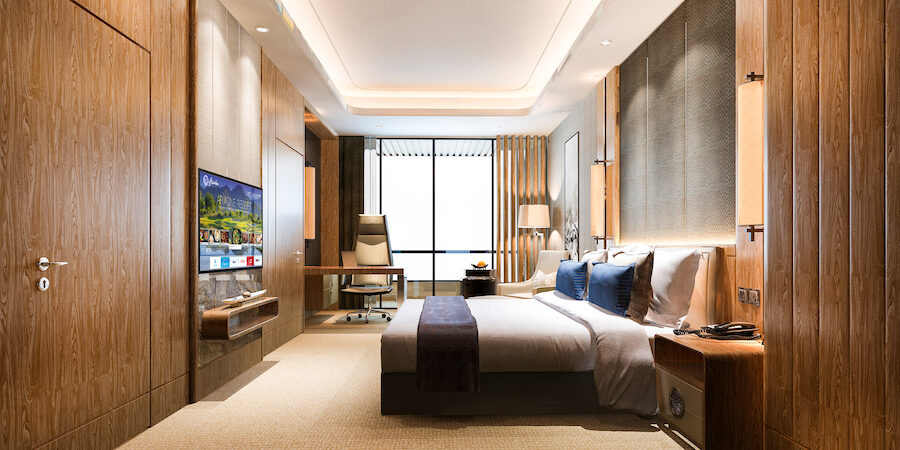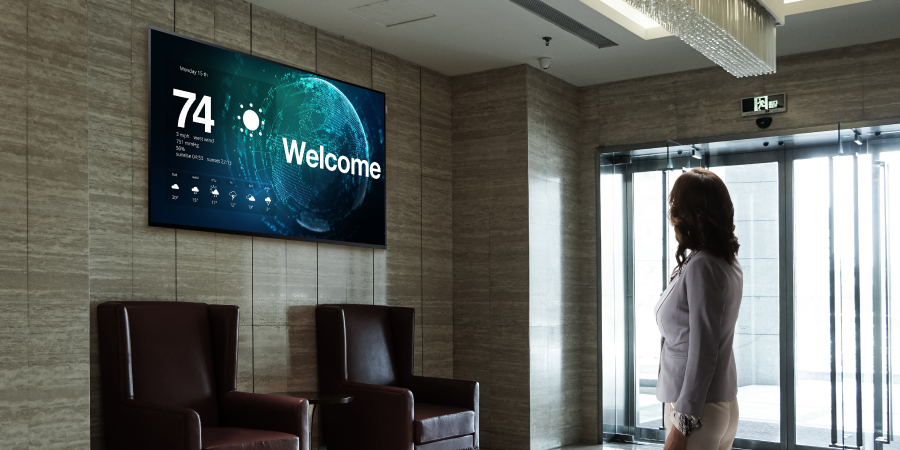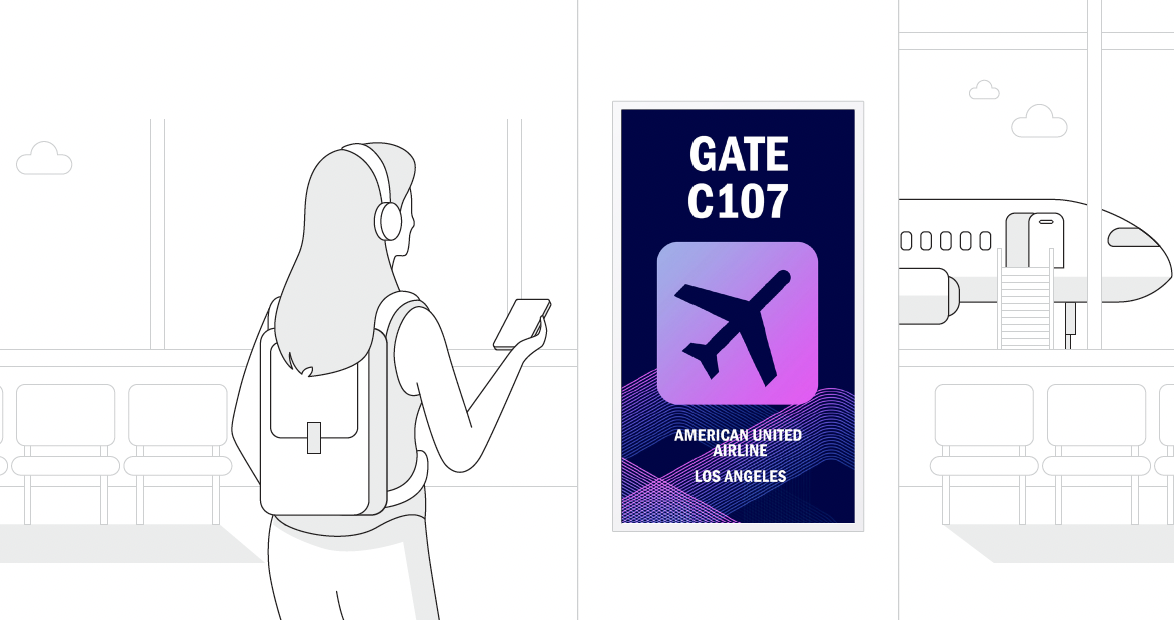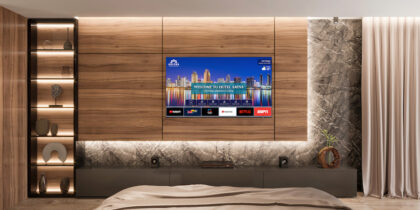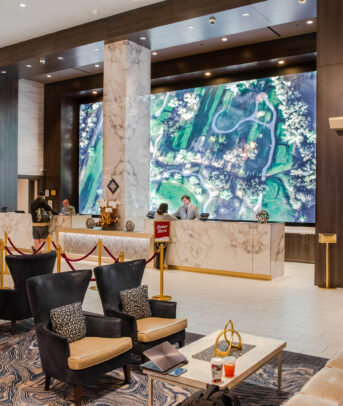From the moment a traveler starts planning their trip until they check out of their accommodation, technology is woven into the guest experience, be it from searching for prices and booking online to contactless check-ins, AI-powered concierges and mobile payments. This creates a more efficient, personalized and memorable journey for guests.
For all the customer-facing technology in the hospitality industry, there’s even more they don’t see. A wide range of customer relationship management platforms, applications, software and other digital tools are empowering hoteliers to streamline operations, manage labor and stay ahead in a competitive marketplace. That looks to continue in 2024, as hospitality technology continues to reshape how consumers book, travel, dine and experience the world.
What are the latest technology trends in the hospitality industry?
Here are six of the latest technology trends in the hospitality industry to watch.
1. Automation
Many tasks in hospitality marketing, management and operations can now be optimized through automation. For example, hospitality brands are increasingly using mobile apps and hotel check-in kiosks, such as Samsung Kiosk, to improve and personalize the guest experience. On a casino floor, guests can use kiosks to purchase tickets to shows, movies or other venue attractions.
When integrated with AI and data analytics, automation also allows hospitality providers to offer even more personalized services to guests. From tailored room temperature settings to customized dining recommendations, automation in hospitality can make each guest’s stay feel unique.
Automation also helps address high staff turnover rates, as it can often cover tasks traditionally done by humans, including inventory management, housekeeping schedules and maintenance tasks. This efficiently fills gaps caused by labor shortages, while at the same time saving money and increasing profitability. This also frees up your human employees to focus on tasks that require a personal touch.
2. Biometrics
Biological measurements — or “biometrics” — use a person’s unique physical and behavioral characteristics to enhance convenience, security and personalization in the customer experience. At hotels, this may include facial recognition and fingerprint scans for contactless check-ins and check-outs, which may even eliminate the need for physical desks in the lobby and key cards. Biometrics can also be used for age verification, for example, to purchase alcohol at the hotel bar and access amenities like the pool and gym.
Aboard cruise ships, passengers can use biometrics to board the vessel seamlessly, bypassing long lines at the check-in counter. A great example is Carnival Cruise Line, which said in July 2023 that facial-recognition technology had been used by 3 million disembarking guests going through customs at Carnival’s homeports.
3. All-in-one platforms
Historically, the hospitality industry struggled with technology adoption and finding unified solutions that address its many unique needs. This kept businesses and facilities working with a patchwork of platforms, applications, trackers and inventories that reduce efficiency and productivity.
Samsung responded with LYNK Cloud, a powerful content and device management system with device control and data analytics capabilities. The solution allows hoteliers to manage operations — even remotely — collect and analyze guest data, and apply that data to deliver more personalized promotional content, ultimately increasing revenue.
Digital transformation and the guest experience
Learn how a single, unified digital solution can elevate and personalize your guest experience. Download Now
4. Hardware reduction
Another hospitality trend is reducing the amount of hardware needed. Reduction reduces cost and complexity and simplifies the operation of hospitality TVs and digital signage. Cruise lines are particularly making an effort, as ships have weight limits. That’s why operators continually strive to eliminate unnecessary pieces of hardware and equipment that not only add weight but clutter spaces. The reduction also helps achieve the sleek, modern aesthetic many hospitality brands are going for.
Samsung System-on-Chip technology is one example of this. It takes what used to require multiple pieces of hardware and puts them into a single unit like an interactive display. This old hardware can include keyboards, hard drives, media players, printed materials like menus and more. Not only does that save space, but it saves money on maintenance and replacements during its lifespan.
5. Sustainability
Amid growing concerns about climate change — particularly among younger travelers — hospitality brands continue to work toward more sustainable operations. In a study by Booking.com, 80% of respondents said that traveling more sustainably was important to them. That means nearly every hotel, casino and convention center is seeking ways to reduce their environmental footprint and meet consumer demand for more sustainable travel options.
Guests and customers have already seen many examples of these efforts, including the elimination of single-use plastic products, installation of electric vehicle (EV) charging stations, switching from paper to digital material, and recycling more water, among others. Sustainability also takes in the staff, training them in eco-friendly practices and operations, which then helps hospitality businesses achieve KPIs faster. With more watchdogs calling out “greenwashing” — fraudulent efforts to appear sustainable — it’s important brands choose sustainability options that produce real, transparent and documentable results.
6. Remote work
Remote work isn’t going anywhere, and that includes the hospitality industry. Nevertheless, employers are looking for ways to make it more collaborative. By refreshing meeting spaces with collaboration tools and interactive products, hotels can better enable their remote staff members and serve business-traveling guests who need top-quality working facilities on-site. The rapid development of this technology is also raising the question: Why fly employees worldwide when you can easily collaborate from a central “command center” using the latest state-of-the-art technology?
A strong partnership between Cisco’s Webex collaboration platform with Samsung digital signage technology is one answer that provides seamless, integrated meeting experiences with smooth videoconferencing, crystal-clear audio and detailed picture quality. Samsung can also meet the need for desktop monitors behind the front desk, as well as in business centers and administration offices.
Future-forward hospitality
The new year is poised to usher in remarkable advancements in the hospitality industry. As automation, sustainability, personalization and collaboration tools propel the industry into an exciting future, embracing the latest technology trends in the hospitality industry will not only elevate guest satisfaction, it will also empower innovative brands to redefine industry standards and lead the conversation, rather than follow it.
Learn more about how digital transformation is elevating the guest experience in a number of ways, as well as how hotels can leverage sustainable technology to save energy and costs while burnishing the brand.
